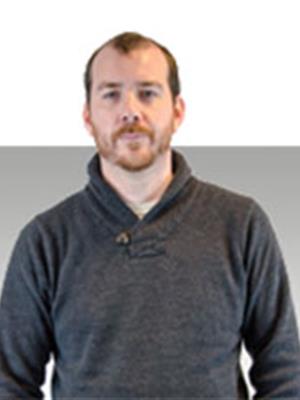
Christopher Trimby
Assistant Professor
Biology Teaching Assistant Project Scholar (BioTAP)
221 Academy Street, Suite 402E
Harker ISE Lab, University of Delaware
Newark, DE 19716
302-831-3424
Biography
Christopher Trimby is an Assistant Professor in the Department of Biological Sciences at the University of Delaware. He holds a Bachelor of Science degree in Biological Sciences from Northern Illinois University and a Doctor of Philosophy in Physiology from the University of Kentucky. Dr. Trimby has a broad background in Biology, having taught a range of courses (from Introductory Biology courses through Senior Honors Capstones) since 2011. After spending several years teaching undergraduate Biology courses, Dr. Trimby transitioned to teaching and mentoring future science faculty at University of Wisconsin where he was Director of the Teaching Fellows Program and Director of Professional Development in Teaching for the Wisconsin Institute for Science Education and Community Engagement (WISCIENCE). At University of Wisconsin, Dr. Trimby also was actively involved in Delta (their branch of the Center for the Integration of Research, Teaching and Learning (CIRTL)) and mentored several graduate students on education research projects. Dr. Trimby moved to UD in the summer of 2018 after realizing that he preferred to spend more of his time working directly with undergraduates and being in the classroom.
In graduate school Dr. Trimby happened to teach a clinical case study-based Physiology course as a favor and was hooked on teaching, especially in problem-based and applied contexts. This led to Dr. Trimby expanding these clinical case exercises into a full standalone course at New Jersey Institute of Technology, and using this same format to develop other applied science courses. At University of Delaware, Dr. Trimby's main role is teaching Integrated sections of Bisc 207 and Bisc 208 but he hopes to be able to bring some of those upper-level courses to UD in the future.
Research Interests
Dr. Trimby's current research interests focus on two main areas: (1) Undergraduate learning, and (2) The development of future science faculty as educators. In the area of undergraduate education this includes assessing the efficacy of various classroom activities, helping students develop their metacognitive skills, and the use of undergraduate peer leaders/mentors. An important aspect of improving undergraduate science education is helping to prepare the next generation of educators. As a result, he is still interested in how future science faculty develop as educators and researching the best practices in training and mentoring new and future science educators.
This Page Last Modified On: